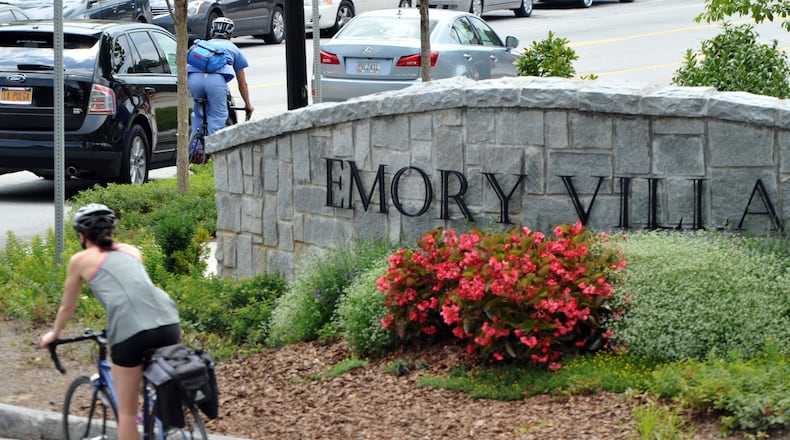Now that city and county officials have reached an agreement on development and fire protection, little stands in the way of Emory University’s annexation into Atlanta.
The DeKalb Commission voted 5-0 Tuesday to approve a settlement with the city of Atlanta that calls for $1 million in annual payments to the county and limits new construction in the university area.
The settlement, if approved by the Atlanta City Council, clears a path for the 744-acre annexation, the city’s largest expansion since adding Buckhead in 1952. Emory, the Centers for Disease Control and Prevention, and Children’s Healthcare of Atlanta will still be in DeKalb County, but no longer be in an unincorporated area.
The annexation would allow city tax money to be used to fund a light-rail MARTA line from Lindbergh Station to the university’s campus.
Commissioner Kathie Gannon said the county initially objected because DeKalb officials wanted assurances that the nearby neighborhoods wouldn't be harmed by the transition.
“The idea was to make sure that our citizens are being protected,” said Gannon, the commission’s presiding officer. “We had to raise those concerns in good conscience.”
The agreement grants several concessions to the county. The city will pay $1 million a year for up to a decade for county firefighting services, adopt the county’s zoning restrictions on development and tall buildings for a year, and require a public meeting on MARTA’s transportation plans.
In addition, the city must adopt a written policy about potential future annexations of adjacent neighborhoods, and developers interested in locating or expanding in the annexed area must submit their plans to DeKalb County so it can determine whether it has enough sewer capacity.
“I am thankful for our county partners who worked collaboratively with the city to reach an agreement that is agreeable to all, and I look forward to working with the Atlanta City Council to finalize this historic annexation,” said Mayor Kasim Reed in a statement.
Emory spokesman Vince Dollard said the university is pleased that the settlement moves the annexation petition forward.
But former state Sen. Vincent Fort, a candidate for mayor, said the annexation could prioritize transportation funding for the university area over other parts of the city that desperately need increased access to MARTA.
“I’m less interested in DeKalb’s deal than I am about the fairness of Emory jumping in line for transportation funding,” Fort said.
Atlanta Councilwoman Keisha Lance Bottoms, also a candidate for mayor, supports the annexation and said it will have a major impact.
“You can now say that you have another world-class institution, like Emory and the CDC, as part of the city. That is fantastic. It’s a win for the entire city,” she said.
The settlement with the city gives the county government more money and land use limitations than it could have possibly won during an arbitration process.
The city and county had been scheduled to go before an arbitration panel Wednesday, but the panel's powers were limited to forcing the city to adopt zoning restrictions on development for one year.
DeKalb will continue to be responsible for water, sewer, storm water and fire services, while the city will take over above-ground services like police and parks. Most of the city’s 472,522 residents live in Fulton County, but about 32,000 live in DeKalb.
“We have a historic agreement that protects the interests of all residents in DeKalb County and the city of Atlanta,” DeKalb CEO Mike Thurmond said in a statement. “This lays a foundation for the enhancement of transportation options for both jurisdictions.”
Fewer than 10 public school students live in the annexation area, and they will continue to attend DeKalb schools. The settlement doesn't address whether DeKalb students could become part of Atlanta Public Schools if nearby neighborhoods follow Emory's lead into the city.
Because all property owners in the annexation area support the move into Atlanta, the final decision on whether it will happen rests entirely with the Atlanta City Council. No referendum is required under state law.
Keep Reading
The Latest
Featured




